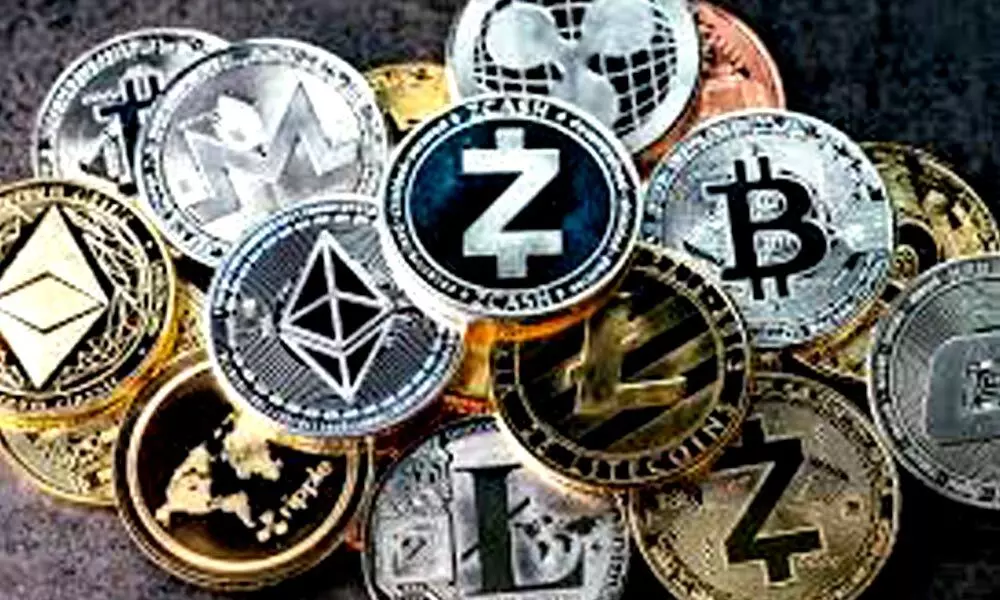Why central banks need to issue cryptocurrencies
Digital money won’t feel new: It will offer instantaneity, just like PayPal, Alipay or WeChat Pay do. Like now, the purchasing power will sit in a smartphone wallet tied to a regular bank account, allowing funds to be swept in and out. But unlike now, the balance in the wallet will be sovereign liability. Just like cash
image for illustrative purpose

Should PayPal be worried about your country's central bank?
The world of money is about to leap into the great unknown of central bank digital currencies. Will it land in a utopia of universal financial inclusion or crash into a dystopia of instability? Perhaps the experiment will upend banking as we know it, or turn out to be one big damp squib, unable to compete even with an existing private network like PayPal Holdings Inc.?
Any of these outcomes are possible. Technology is enabling monetary authorities to give ordinary people access to a kind of electronic cash they have never had before. Digital money won't feel new: It will offer instantaneity, just like PayPal, Alipay or WeChat Pay do. Like now, the purchasing power will sit in a smartphone wallet tied to a regular bank account, allowing funds to be swept in and out. But unlike now, the balance in the wallet will be sovereign liability. Just like cash.
This difference will matter in case of bank runs. As you and a hundred others queue up to take all your savings out of a commercial institution that's suddenly rumoured to be unsafe, you can buy a book online using your new electronic cash - that is, make a payment without debiting your bank account - and Amazon.com Inc.'s bank won't have to worry about getting remunerated.
A big relief? Let's be reasonable. In a functioning 21st-century state, where there are no breadlines or snipers shooting from rooftops, no seller frets about small payments getting blocked because of bank failures. Deposit insurance takes care of that. Any advantage from possessing the mother of all money - one that extinguishes all claims of the merchant on you, yours on your bank, or the seller's bank's on your bank - is irrelevant. PayPal linked to a regular bank account works just fine in ordinary situations.
But supply can create its own demand. Already the competitive pressures are mounting]: the People's Bank of China is expected to roll out its electronic yuan, e-CNY, as early as next year. If it doesn't, then the Chinese might start using Bitcoin as a store of wealth and a means of payment. If the US Federal Reserve doesn't respond, Americans might take to e-CNY, a direct claim on the People's Bank of China. A new survey by the Bank for International Settlements shows that central banks are worried about residents shunning money they alone can print. "Widespread adoption of a foreign retail CBDC," as BIS General Manager, Agustin Carstens, said in a recent speech, can be understood "as 'digital dollarization,' or insert the currency of your choice here."
It's the prisoner's dilemma and the quandary of how and whether to cooperate. No central bank has to issue its own digital cash if no other state or private actor introduces tokens that act like money. That fork in the road is already behind us, thanks to cryptocurrencies going mainstream. So authorities in most countries may have no choice except to jump on the bandwagon.
The question then is, should they make their offering attractive? Cash doesn't pay interest, but central bank digital currencies can. That's because they'll be tied to accounts held with monetary authorities. If they do pay interest, we may not want to keep money in a vanilla savings account. What happens next is anybody's guess. Some researchers argue that this will be the harbinger of the central bank "as a deposit monopolist, attracting all deposits away from the commercial banking sector." Others are more skeptical: "It is unlikely that central banks would be able to offer the same spectrum of services that are associated with a private bank account."
There's a third view: Unless central banks also start underwriting loans, banks may do just fine. Yes, lenders will have to pay more for deposits, and seek out bottom-of-the-pyramid customers they currently ignore. But greater financial inclusion will be a good thing. As long as the deposit rate is lower than the interest they receive on reserves parked with the monetary authority, and that in turn is lower than what they can charge on loans, banks can survive. Official digital currencies "need not have a negative impact on bank lending operations if the central bank follows an interest rate policy rule," concludes David Andolfatto, an economist at the Federal Reserve Bank of St. Louis, adding that well-designed official electronic cash "is not likely to threaten financial stability."
Consider a fourth scenario: digital currencies that are truly international, not confined to the technology choices of national payment systems. As Peter Bofinger and Thomas Haas of the University of Wuerzburg in Germany write: "The benchmark is set by PayPal which is the 'elephant in the room' of global payments." Who'll want a piece of this PayPal beater? Diem, as the former Facebook Inc-sponsored network is now called, could be a customer. Diem will issue private cryptocurrencies that are pegged to legal tenders and, therefore, less volatile than Bitcoin. Instead of keeping reserves with different monetary authorities to back its stablecoins, Diem can simply buy the required e-CNY, FedCoin, and the rest. Provided these different digital currencies are integrated on a single platform.
That's not happening soon, not when central bank electronic cash is being viewed as a Cold War-type space race between superpowers. Monetary technocrats may not share their political masters' chest-thumping nationalism, but they won't be able to keep it at bay. PayPal can rest easy for now. (Bloomberg)

